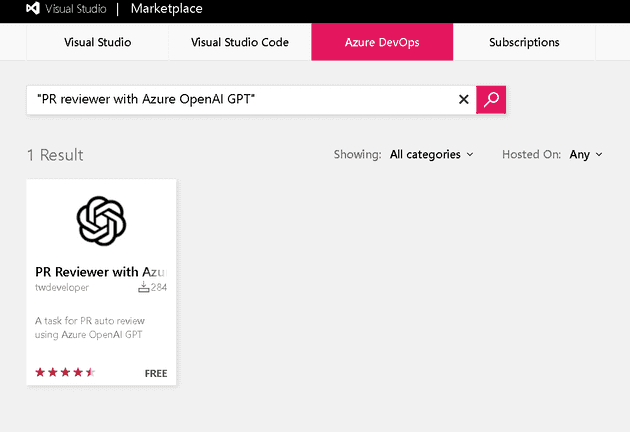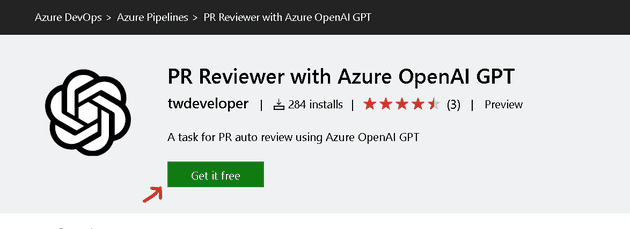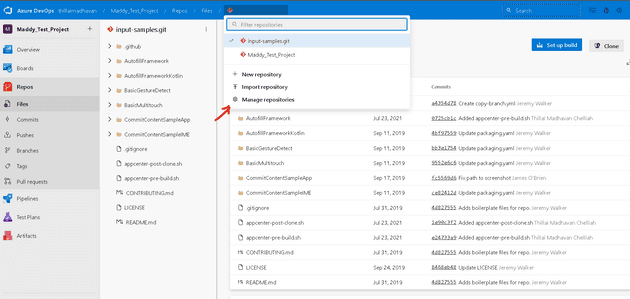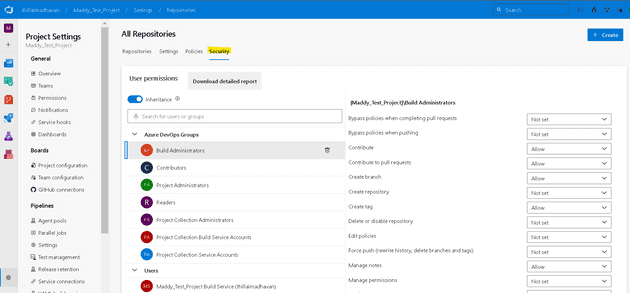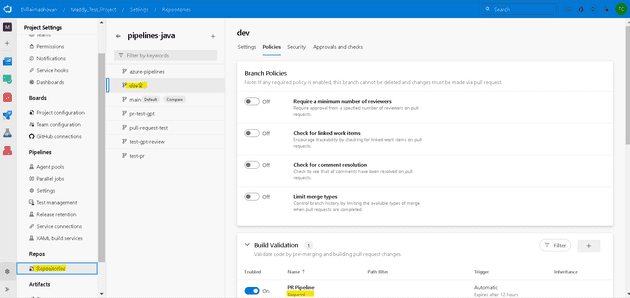In Azure DevOps, Pull requests provide a way for reviewing the code before merging the changes to a branch. Reviewers need to have a keen eye and good programming skills to be able to provide constructive feedback. The review comments are subjective and each reviewer will have their own style. while these reviews can never be fully automated,integrating an automated PR review in the process before manual review can reduce the load on reviewers
Let's see how GPT can be used to do PR reviews
Install the extension:
To install the GPT extension
click on "Organization Settings" and "Extensions"
click on "Browse marketplace"
Search for PR reviewer extension
click on the "Get it free" button on the extension page
then click install to finish the installation process
Configure the permissions:
The extension requires certain permissions to be able to access the pull request
From the Repos drop-down, select "Manage repositories"
Navigate to the security tab
Allow the build service to "Contribute to pull requests"
Modify the pipeline:
For demonstration, let's use a simple Java Maven build pipeline which looks like the one below
trigger:
- dev
pool:
vmImage: ubuntu-latest
steps:
- task: Maven@3
inputs:
mavenPomFile: 'pom.xml'
mavenOptions: '-Xmx3072m'
javaHomeOption: 'JDKVersion'
jdkVersionOption: '1.8'
jdkArchitectureOption: 'x64'
publishJUnitResults: true
testResultsFiles: '**/surefire-reports/TEST-*.xml'
goals: 'package'
Before adding the GPT task we need to
- add a checkout step with persistCredentials enabled
- Generate an API key from openai api https://platform.openai.com/account/api-keys
The pipeline will look like the below
pr:
branches:
include:
- dev
pool:
vmImage: ubuntu-latest
steps:
- checkout: self
persistCredentials: true
- task: Maven@3
inputs:
mavenPomFile: 'pom.xml'
mavenOptions: '-Xmx3072m'
javaHomeOption: 'JDKVersion'
jdkVersionOption: '1.8'
jdkArchitectureOption: 'x64'
publishJUnitResults: true
testResultsFiles: '**/surefire-reports/TEST-*.xml'
goals: 'package'
- task: GPTPRReviewer@0
inputs:
api_key: 'blahblahblah'
api_key_source: 'openai'
aoai_endpoint:
comment_language: 'en-US'
Enable PR Trigger:
The GPT task is designed to be run only when the build is triggered from a pull request
So we will make a few changes to the branch policies
from "Project settings", navigate to "Repositories" and select the required repository, then click on the policy tab and under Branch policies click on the specific branch (dev in this case)
Under the "Build Validation" section enable "Build must succeed in order to complete pull requests."
Create a PR:
I have added the following method with an inefficient constructor to check if the GPT reviewer will find the issue
public void sayHello(String world) {
String message = new String("hello ");
message = new String(message + world);
}created a PR and waited for the PR pipeline to complete
Navigated to the specific PR.
Hurray! GPT has detected the inefficient constructor and posted the suggestion as a review comment.
if you are using a free version of OpenAI , you might run out of credits.
The task will no longer work after the usage limit is exhausted.
https://platform.openai.com/account/usage can be used to check the usage
Summary:
Code review is one of the most complex parts of the SDLC to be automated. Additionally, there should be serious security and privacy considerations if an AI reviewer has to be implemented at an organizational level. However, I see that at least open-source projects can readily benefit a lot from using such reviewers.
Thanks for reading, Goodbye until next week!


